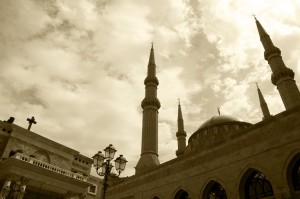Mula’s Story
MULA’S STORY
Mula, a devout Muslim, came of age during the Russian invasion of Afghanistan. While battles were waged in the countryside, he taught children at the local madrasah (school). At 14, Mula was one of the few literate people in his village.
As the Russian army approached, the slightly built but fiercely loyal boy wanted to join the resistance. He abandoned teaching in defense of his country. Overwhelmed by the well-armed attackers, he was badly wounded. A brave uncle dragged the barely alive boy to safety. Though Mula’s injuries were severe, he had to be moved frequently — just ahead of the advancing Russian army. There was no time to let his family know what happened.
His father was determined to learn if his beloved son was alive. He saddled his mule and rode for miles, searching over mountainous terrain. He finally discovered his injured child in a hospital run by French doctors. Upon arriving at his son’s bedside, the once-determined father fainted at the sight of Mula’s wound.
Though gravely injured and far from home and family, what grieved Mula was seeing his elderly father weakened and disheartened.
Mula’s leg was shattered and a section of bone was missing. In order to heal or walk again, his father knew his son had to leave Afghanistan. The father bribed a taxi driver to take Mula cross-country, past three Russian checkpoints and through the Khyber Pass. Mula finally made his way to a Pakistani medical center and refugee camp.
After spending a year in the camp, braving persistent visits to the Red Cross and enduring terrible pain, a United States bone specialist saw his file and felt he knew what to do with the injury. The doctor’s own family had fled Latvia during the Russian invasion years before. Mula was brought to the U.S. for necessary medical treatments. He spent months in a rehabilitation facility. Lying in a hospital bed, he learned English by watching cartoons.
A local town business arranged for his health insurance. Two years and two American families later, another family took him in and helped him get his green card. Sadly, he could not return to Afghanistan as long as the Russian army remained.
I asked Amy, Mula’s “foster” mom, how they became family.
“Mula came to us through our church, … the wife of our minister … appealed to the Mission and Action Committee to have the church sponsor him so he could stay in this country…. We had a large farm house and after talking it over, my husband and I asked to meet him.”
Were there any fears about taking him in?
“… With a son in third grade I was very concerned about how this young man who had endured war, been physically wounded, and possibly emotionally scarred, would influence our own beloved son.”
And then?
“When he walked through the door of the church sitting room and looked at us with warmth and hope and openness… I knew it would be all right. And it was more than all right. Mula gave our family at least as much as we gave him.”
The family soon deepened its commitment and trust in one another. Mula said, “My life will never be the same because I knew them.”
Years later, Mula joined the U.S. government in an effort to fight al-Qaeda. He lost many friends in the struggle, including the brave uncle who pulled him to safety.
He married, had a family and settled down in the United States. A short time ago he reached out to help American friends who were struggling to raise their granddaughter. His close relationship, love and respect for the entire family enabled him to offer and be accepted to parent the child.
“[Mula] has kept his faith strong and his heart open,” Amy said.
He is now off to Afghanistan, risking his life in the ongoing battleground. He wants his homeland free.
“I think Mula is an epitome of the American story,” Amy said. “He’s an example of what I hope America means to the world.”
* names have been changed to protect privacy of subjects
About the Author:
Kathleen Webster is a community organizer in New York City’s lower Manhattan. She is the Co-Chair of an activist community garden on the Lower East Side and the Chair of the Chinatown Working Group’s Education and Schools Working Team. She is an artist, organizer, former construction worker, mom, wife, and daughter and proud of her working class Buffalo roots.

